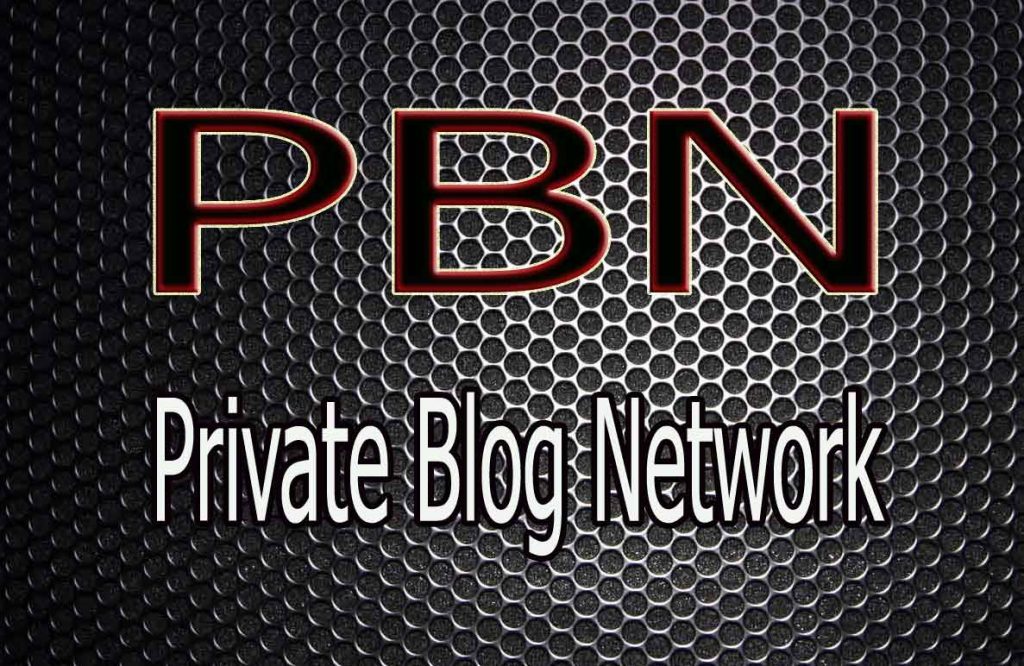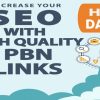Private Blog network (PBN) is a mean of driving backlinks to the website without leaving any footprints. Google punishes PBN sites most of the times and lately they strengthen the algorithm to identify PBN sites. It is recommended to stay away from PBN as Google may penalize you and would ultimately result in a poor ranking of your website.
If you know anything about how Google operates, it should come as no surprise that PBNs violate several major rules. Google hates money changing hands directly relating to search ranking – you can’t pay for a higher ranking directly – and they hate hidden techniques that boost the rank of a site artificially. Both of those are elements of PBN usage. Over the years, Google has taken a number of steps to devalue PBNs, but it’s not an easy task.
There’s no sweeping change Google can make that will make PBN usage ineffective. The only way they could do so would be to change the value of links, but links are so foundational to the search engine that they would need an entirely new system. Instead, they essentially play whack-a-mole with PBNs. They have a ton of different ways to detect a PBN, everything from sending a mole to buy links from known PBN sellers to searching using machine learning algorithms to spot patterns in links from supposedly unrelated sites. One recent update on this front came in February of last year.

While some remain successful with their PBNs as seen from the examples above, it doesn’t mean that they won’t get penalized soon. It will probably take time before Google catches out with this tactic, but it probably won’t. However, would you want to risk the fate of your SEO campaign on a gray hat SEO tactic?
Ultimately, private networks don’t prove to be a sustainable SEO tactic over time. In a post written by me before, I saw someone who has come to terms with the futility of PBNs after his network got penalized by Google. Lots of users chimed in by stating how much passive income they’ve lost after Google brought the hammer down on their networks.
You can continue to approach using any sort of PBN cautiously, but you simply shouldn’t put all your eggs in one basket. There is simply so much on the line on a tactic that walks a tightrope between white- and black-hat SEO.
Are private blog networks in danger of being found by Google?
Let’s face it. PBNs are against Google terms & conditions. You might earn a penalty if you get exposed. But the truth is, if you’re being smart about using Private Blog Networks for ranking – your chances of getting busted are low.
What should you look out for?
- all your websites should have different hosting accounts (different IPs)
- different contact information for each and every one of your websites, but don’t hide your WHOIS info
- use different WordPress themes & different design each time!
- Duplicate content & same images is a NO.
- Never interlink your ‘secondary’ websites, never.
- Don’t spam links from your PBN to your central website.
- Remember, you’ve been warned. 😉
In my experience, PBN usage works, but is very risky. If you’re the kind of person who wants to drop $5,000 to earn $20,000, with no long-term prospects, then it’s a perfectly viable technique. If, on the other hand, your goal is to build an authority site that will rank well and last for years or decades, bringing in consistent customers and a passive income stream that can last indefinitely, PBNs will crush your dreams. As with any black hat technique, exercise extreme caution and know what you’re getting into.
What Are the Risks of Using a PBN?
There are so many. The main one is that Google figures out you are gaming the system by using a PBN and penalizes your site. Think about how much data Google can collect from Chrome, Android, Gmail, Google Drive, and any of the other companies and services it owns. With artificial intelligence getting smarter and smarter, it’s really not a case of “if”, but rather “when” your PBN will get busted.
If you are using someone else’s PBN, it’s even worse. If someone else disavows some of your PBN sites because they get penalized, Google can use this data to penalize you, too. The fact is that good white hat link building is cheap and effective these days and this represents a much more stable and long-term method to drive traffic to your site.
Well, obviously it’s against Google TOS, so there’s always a risk that Google will somehow figure out you’re using a PBN and give you a penalty. But I don’t think that’s a particularly big risk unless the PBNs you’re using are really low quality and/or they’re actually public blog networks, not private (e.g., paid PBN links). Google has bigger fish to fry, like SAPE, hacked backlinks, or public blog networks.
The bigger risk is really just that the domains you’re using for your PBN are low quality or the content on your domains is low quality and Google deindexes or devalues your links, which would make your money site rankings drop. This wouldn’t be a penalty per se, as the Google algorithm is slowly shifting to better identify what “high-quality backlinks” actually means.
Read more Top ways to use PBN backlinks to increase keyword ranking
_______________________________________________________________________________
For more details about our seo service packages, pls contact us
BIGBIGSEO Team
Email: bigbigseo@gmail.com
Skype: bigbigseo
https://www.facebook.com/bigbigseo
Thank you!




